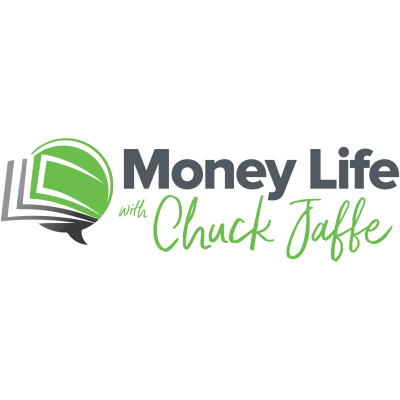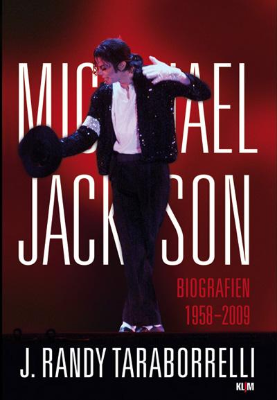
Money Life with Chuck Jaffe
engelsk
Business
Begrænset tilbud
1 måned kun 9 kr.
Derefter 99 kr. / månedOpsig når som helst.
- 20 lydbogstimer pr. måned
- Podcasts kun på Podimo
- Gratis podcasts
Læs mere Money Life with Chuck Jaffe
Money Life with Chuck Jaffe is leading the way in business and financial radio. The Money Life Podcast is a daily personal finance talk show, Monday through Friday sorting through the financial clutter every day to bring you the information you need to lead the MoneyLife.
Alle episoder
1954 episoderCFRA's Stovall says this bull market is partying, not getting scared
Sam Stovall, chief investment strategist at CFRA Research [https://cfraresearch.com], says that "Bull markets don't die of old age, they die of fright, and what they are most afraid of is recession." But he says the current bull market not only doesn't need to be too worried about recession yet, he says that after celebrating its third birthday, it has gotten into the rarified air of a market that can keep running and producing positive results for longer. While he is not expecting a big, double-digit year in 2026 for the stock market, he says modest gains — tempered by heightened volatility and a downturn or two to overcome — are likely. In "The Danger Zone," David Trainer, president at New Constructs [https://newconstructs.com], revisits three past picks that outperformed as shorts but which then got the actual benefits of "stupid money risk" — something he discusses nearly every week on the show — as they were bought out by private equity firms in deals that bailed out some shareholders, but which says will not be enough to save bad businesses. Plus, Vijay Marolia [https://vijaymarolia.com], chief investment officer at Regal Point Capital [https://rpcapitalsolutions.com], is back with "The Week That Is," digging further into the Warner Brothers Discovery buyout, discussing whether a selloff last week might be a sign that investors are getting weary and may bail out before Santa Claus comes for a rally, and looks at the potential for a SpaceX initial public offering in 2026, which might be the biggest IPO in history.
Sit Invest's Doty expects 'complete mess' - and big opportunity - in Fed transition
Bryce Doty, senior portfolio manager at Sit Investment Associates [https://sitinvest.com], says that history has shown that nearly every new Federal Reserve chairman does "something dumb" when they first get the job. With Jerome Powell soon to be out as Fed chair, Doty says the central bank is in a tricky place, where it could make a cut before the change and have the next chairman come in anxious to cut further, making a policy mistake that hurts the market, but creates buying opportunities for investors willing to ride it out. He's not the only one on today's show fearful of a Fed mistake, as that is the nightmare scenario for Dustin Reid, chief investment strategist at Mackenzie Investments [https://mackenzieinvestments.com], who says in the Big Interview that the economy has gotten to a point where further moves forward may have some negative impacts, hurting credit markets, raising more potential for a downturn and recession and, generally, not providing the classic economic boosts that frequently drive the markets higher. In the "Talking Technicals" interview, Gregory Harmon, president at Dragonfly Capital Management [https://dragonflycap.com], says he is expecting a small-cap rally to lead the market higher into year-end, and he says that the large-cap stocks — as measured by the Standard & Poor's 500 — will follow suit, and that the question will be whether the tech-heavy Nasdaq Composite comes along for the ride. "Technicals are all pointing higher, earnings are doing fantastic," Harmon says, noting that it would take "an unexpected crisis" to derail the underlying trends pointing "strongly to the upside" right now. Plus, Chuck discusses a visit to the bank to grab some cash that was met with an unusual question from a teller, a query that he says is a reason why consumers may want to have more face-to-face relationships with financial advisers of all stripes, rather than doing everything online.
Loomis legend Fuss says geo-politics are the economy's biggest threat now
Dan Fuss, vice chairman at Loomis Sayles & Co. [https://loomissayles.com], now 92 years old and having cemented a track record as one of the best bond fund managers ever, says he's not concerned about a recession because the economy is strong, and in some ways stronger than its ever been during his investing lifetime, but he also compares current times to the late 1930s, a period when geopolitics were dominating the global scene building up to World War II, and says that he is more concerned with those macro-level worries than he has been in his career. Fuss notes that the global scene is more important to what happens next with the U.S. economy than even what the Federal Reserve does, and he quells concerns over pressure on the Fed to cut rates by noting that "every president" wants the central bank to lower interest rates. Todd Rosenbluth, head of research at VettaFi [https://VettaFi.com], makes the Victory Shares Free Cash Flow Growth ETF his "ETF of the Week," noting that it's a relatively new fund focused on quality that has outperformed the market since its debut in 2024. Rosenbluth said the quality focus should give investors some calm if they continue to pursue growth in a market that he thinks will be facing increased volatility in 2026. Plus, with the Federal Reserve cutting interest rates on Wednesday, Chuck weighs in on what he thinks might happen next and why he worries that interest rate cuts not only won't impact the market as they have in the past but have some potential to hurt the economy at least as much as they could help it if rate reductions continue in the future.
IDX's McMillan eyes $10K gold prices and higher long-term inflation
Ben McMillan, chief investment officer at IDX Advisors [https://idxadvisors.com], says that "gold's run is not over," and while he thinks it could easily reach $5,000 an ounce in the short order, he says "It's not inconceivable that within the next half-decade, gold could be sitting at $10,000 an ounce." (Gold is currently trading at roughly $4,225 an ounce.) He also says he expects the Federal Reserve to reach a point in the next 12 to 24 months where it lives "with a new normal of inflation" and resets its target inflation rate to reflect different thinking, which will mean consumers and investors have to adjust to inflation rates running at 3 percent or higher for the foreseeable future. Amanda Agati, chief investment officer at PNC Asset Management Group [https://pnc.com] discusses the company's Christmas Price Index, which looks at the current cost of giving your true love all of the gifts from the "12 Days of Christmas [https://pnc.com/en/about-pnc/topics/pnc-christmas-price-index.html]." Thanks to higher prices with gold -- and the five golden rings -- it's no surprise that the rate of inflation shown in the company's 42nd annual holiday index is higher than inflation generally. Plus, in a market that has been driven to near record levels on the strength of corporate earnings, Nick Raich, chief executive officer of The Earnings Scout [https://EarningsScout.com], returns to the show for the first time since 2020, talking about his earnings-centric methodology and his expectations for continued earnings growth for the market.
Scott Brown of Brown Insights: 'Something seems to have changed here'
Scott Brown, Chief Strategist at Brown Technical Insights [https://browninsights.com], is wondering "if the market is sniffing out something," because he has seen a change in the last month on the sectors that are now leading the way forward, and it's not the same things that were leading just a few months ago. Brown notes that banks, transportation, global materials, steel and copper stocks are among the areas that now have taken market leadership, and he says that "there's real upside" to where they can drive the market close to a level of 7,000 on the Standard & Poor's 500 by year's end. A day after discussing the market broadly, Jeffrey Hirsch, editor of the Stock Traders Almanac [https://stocktradersalmanac.com], returns to the show to discuss the Almanac itself for 2026, noting how the old technology of an almanac still has a place in helping to shape forecasts and expectations because it is built on decades of data that remains relevant, even in a world seemingly dominated by the changing technologies of artificial intelligence. David Rosenstrock, director of investments and financial planning at Wharton Wealth Planning [https://Whartonwealthplanning.com], discusses his approach to mutual funds and ETFs in the Market Call.
Vælg dit abonnement
Begrænset tilbud
Premium
20 timers lydbøger
Podcasts kun på Podimo
Gratis podcasts
Opsig når som helst
1 måned kun 9 kr.
Derefter 99 kr. / måned
Premium Plus
100 timers lydbøger
Podcasts kun på Podimo
Gratis podcasts
Opsig når som helst
Prøv gratis i 7 dage
Derefter 129 kr. / month
1 måned kun 9 kr. Derefter 99 kr. / måned. Opsig når som helst.

































